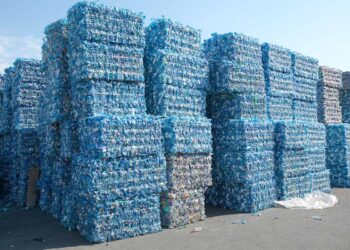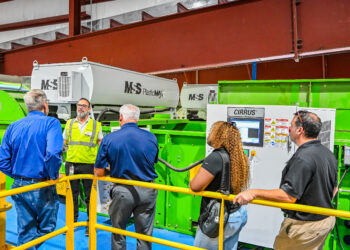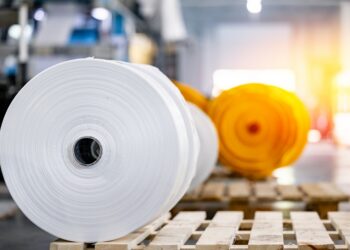The trustee overseeing circuit board processor Camston Wrather’s bankruptcy has asked the court to dismiss the case altogether, saying that no buyers are interested in a full-facility sale, cash reserves are drying up fast, and parting it out for specific equipment sales will not provide meaningful recovery for creditors.
Camston Wrather, which operated a circuit board processing plant in Carlsbad, California, and several affiliated business entities, filed for Chapter 7 bankruptcy on Feb. 13, indicating a plan to shut down and liquidate assets to pay creditors.
In the seven weeks since then, disclosures by the trustee show the case has hit several snags. A hearing on the dismissal is scheduled for April 11.
The trustee’s latest court filings indicate the company initially planned a reorganization bankruptcy under Chapter 11, a move that would have kept the company operational. The company changed plans at the last minute when it became clear a financing agreement allowing the company to keep operating couldn’t be reached, trustee David Carickhoff wrote in a March 20 court filing.
The move to liquidate was “a last-minute pivot,” he added, leaving no time to prepare and file common bankruptcy documents like schedules and statements of financial affairs. That meant he had less information to guide him in managing the bankruptcy proceedings.
Carickhoff noted the company’s e-scrap recycling activities were housed within the Carlsbad facility, which was leased, and that the equipment was “unique” to Camston Wrather’s process. He expressed confusion on the status of the company’s connected business operations, such as ITAD firm Stream Recycling Solutions.
“While I understand that the debtors had locations in other areas, including Arizona, Florida, Missouri, Pennsylvania, and Texas, it is not clear to me whether those locations were shuttered and/or abandoned prior to the petition date,” Carickhoff wrote.
Nearly all of the company’s assets are subject to liens, he wrote, and secured creditors are owed more than $100 million.
Little sale interest and high costs cause concern
In the weeks after the bankruptcy filing, the trustee spoke with creditors, financial consultants for Camston Wrather, former company executives, the landlord of the Carlsbad property, potential buyers, an auctioneering company and others.
He looked at options for a turn-key sale, where the entire facility and its equipment would be sold to a buyer, rather than separating it out piece by piece.
Camston Wrather had previously scheduled testing with the Department of Defense for early March; one of the company’s major selling points was that it would meet recycling and data destruction standards for federal agencies.
The trustee received approval for the facility to proceed with “certain testing of the machinery and equipment at the Carlsbad facility in connection with a possible contract with the Department of Defense,” he wrote. “From all reports, the testing was successful, and the machinery and equipment was able to meet the requirements.”
But “despite having proceeded with the DoD testing to enhance turn-key sale prospects, no turn-key offers have been received to date,” Carickhoff wrote.
On top of the lack of interested buyers, costs are steep to keep the facility idled but viable for a restart. Monthly expenses include $150,000 for rent, $15,000 for utilities, $65,000 for insurance and $50,000 for independent contractors to perform various tasks.
Carickhoff noted that other expenses would come up during a potential sale, which would take roughly 60 to 90 days and involve legal disputes over who owns what at the facility. He noted the landlord “is asserting certain ownership rights.”
Those expenses would exceed the currently available cash, he wrote, and “based on my discussions to date with potential buyers and an auctioneer that conducted a site visit, I am not confident that the sale of the equipment would generate sufficient cash to keep the estates solvent or provide any meaningful recovery” to creditors.
As such, the trustee asked the court to dismiss the Chapter 7 cases. He noted that “in the event that I receive a binding turn-key offer before the end of March that I believe can be executed, I would consider withdrawing this motion.”
Local legal cases pile up
Meanwhile, Camston Wrather is facing multiple legal actions stemming from operations at the Carlsbad facility.
In May 2023, engineering and construction firm Total-Western filed a breach of contract civil suit against Camston Wrather, later securing a lien of more than $9 million on the property. That case has been winding its way through San Diego Superior Court the past two years, but it was paused in February when Camston Wrather filed for bankruptcy.
Separately, IHI Power Services, a company that provides operation, maintenance and other technical support, on Feb. 6 filed a legal complaint against Camston Wrather. Court records lay out that Camston Wrather in late 2021 hired IHI to manage, maintain and operate the Carlsbad facility. In November 2024, Camston Wrather terminated that agreement, a move that IHI says comes with a number of contractually agreed-upon termination fees.
IHI alleges it is owed $476,000 plus accrued interest. That case is ongoing.
Investment backdrop comes into focus
While Camston Wrather has not publicly commented on what led to the bankruptcy, Securities and Exchange Commission records show the company drew significant financial interest from an investment firm in mid-2024, but that firm later decided not to pursue Camston Wrather as a business venture.
In mid-2024, Evolution Metals, an investment firm focused on critical minerals-related businesses, began investing in Camston Wrather. Evolution later in the year began the process of registering to be publicly traded on the NASDAQ stock exchange, spurring the SEC filings.
Evolution Metals advanced a total of $12.5 million to Camston Wrather in June, August and September to fund the company’s working capital, according to SEC documents.
The investment agreement further specified that Evolution planned to fully acquire Camston Wrather for a total of $1.25 billion, paid through $400 million in cash and $850 million through issuing new stock shares.
In an August 2024 press release, Evolution said it planned to “replicate across the U.S. our existing capacity in our one-of-a-kind U.S. Department of Defense certified e-scrap recycling plant.”
But in October 2024, Evolution “decided not to pursue the acquisition,” an SEC filing indicates, and in November 2024 Evolution sent the company a notice of termination of the business agreement. Evolution also notified Camston Wrather it needed “to repay $4,174,445 of the advances” made throughout 2024.
The dissolution of that acquisition agreement came around the same time Camston Wrather canceled the contract with IHI to operate and maintain the Carlsbad facility.
Since then, Evolution has cleared SEC approval and is in the final stages of going public. And although the company moved on from Camston Wrather, it has a significant e-scrap connection: It is in the process of fully acquiring Critical Mineral Recovery, a lithium-ion battery recycling operation connected to St. Louis-based e-scrap processor Interco Trading. Interco supplies batteries to Critical Mineral Recovery for processing.





























